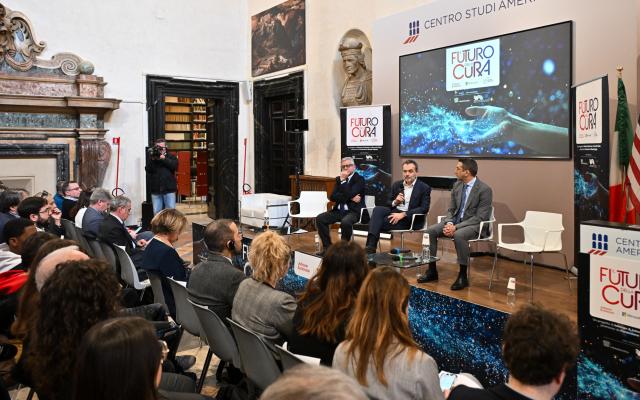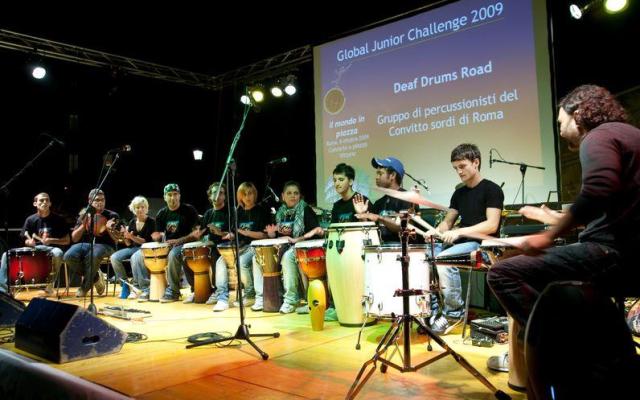2 min.
Didactic labs on cultivation techniques with the use of new technologies, on-line forums called Ortoline, the creation of a web community for the virtual urban vegetable gardens, development of Ortoradio, creation of an environmental education manual... These are some of the actions planned by the Memorandum of Understanding signed on October 19 by the Fondazione Mondo Digitale and Legambiente Campania to start Project Nonnet – Digital Urban Vegetable Gardens.
Presentation by Mirta Michilli, Director General, FMD
Presentation by Alfonso Molina, Scientific Director, FMD
The pilot project is underway in three different areas:
- The Eco-Archaeological Park of Pontecagnano-Faiano (Salerno)
- Urban vegetable gardens in Eboli – Sant’Antonio (Salerno)
- Urban vegetable gardens in Teverolaccio and Succivo (Caserta)
The great Eco-Archaeological Park of Pontecagnano was developed to safeguard the historical, archaeological and natural heritage of the area. The project entails not only providing the archaeological site with modern information tools, but also the implementation of one of the 1000 “city vegetable gardens” that will allow local elders to run organic agriculture experiments. Moreover, the first open air library for children has been inaugurated inside the park. This is where the first “Ortoline” will allow children and elders to practice their computer skills and share their experience on-line.
The digital urban orchard in Eboli (Sant’Antonio area) has been cleaned and reclaimed by Legambiente volunteers. The area will be used as an eco-digital didactic laboratory for environmental education projects by the city schools. The initiative includes both practical hands-on cultivation and the use of new technology to study and divulge environmental education both on- and off-line.
The vegetable gardens in Casale di Teverolaccio in Succivo include ten lots (50 square meters each) that will be allocated via a public call (to be issued shortly) to retired citizens of Succivo. The elders will have to cultivate the lots without using chemical fertilizers and will be allowed to keep all their produce. In particular, the project also calls for the return to grape cultivation on poplar trees. Schools will be involved in the didactic factory project to educate the new generations on environmental respect and the safeguarding of the historical and cultural heritage.



